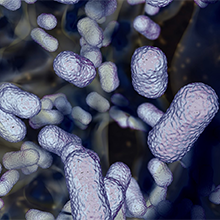Access Microbiology launches a negative results collection
05 April 2024

Access Microbiology is excited to launch a new collection on the platform, highlighting the negative results studies published since Access Microbiology’s launch in 2019. Negative results are an integral part of sound and open science, adding value to the scientific literature that is often overlooked. We would like to thank science integrity consultant Elisabeth Bik for providing an editorial for this collection, on the importance and value of negative data.
If you would like to submit your negative results studies to the collection, more information about publishing in Access Microbiology can be found here. Please specify in your submission that you would like the article to be added to the collection.
To celebrate the collection launch, we asked some of the authors included what the value of publishing negative data was:
“Sharing of negative results is important to avoid redundancy, helping other researchers carrying out the same studies. I also believe that sharing of negative results is important for promoting transparency and reproducibility in science.” Ayush Kumar, Atorvastatin does not display an antimicrobial activity on its own nor potentiates the activity of other antibiotics against Acinetobacter baumannii ATCC17978 or A. baumannii AB030.
“I think it is important to publish “negative results” that address obvious research questions because they may inspire to taking different approaches to the topic. Also, they may prevent others from conducting the same experiments. This will save a lot of working hours in the lab and will reduce the enormous amounts of waste that are associated with conducting laboratory-based reseach.” Hanne Ingmer, Fluoroquinolone resistance does not facilitate phage Φ13 integration or excision in Staphylococcus aureus.
"A negative result can be essential in getting to the bottom of a biological question. In this way, it can even be every bit as critical as a positive result when informing the next steps to take." Sam Belton, Genetic and lipidomic analyses suggest that Nostoc punctiforme, a plant-symbiotic cyanobacterium, does not produce sphingolipids.
“Publication of negative results serves to avoid duplication of research, and in the process, reduce time and resource wastage. However, it is important to stress that the research must be done correctly and the data analysed robustly.” Carl Ng, Genetic and lipidomic analyses suggest that Nostoc punctiforme, a plant-symbiotic cyanobacterium, does not produce sphingolipids.
Browse the full collection here.


